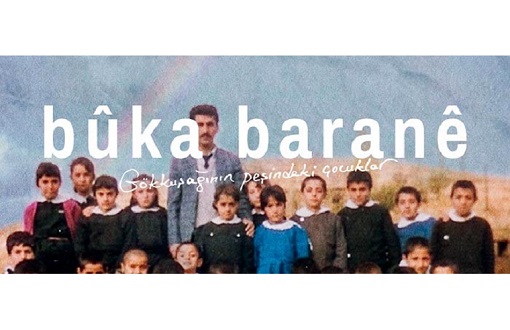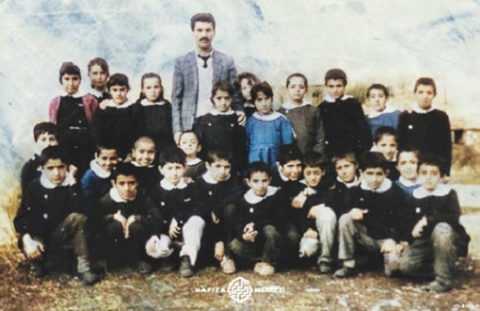
Hafıza Merkezi, which has just completed its first year in March, will make the findings of this first year public in March and April 2013.
First of all, we have completed Bukâ Baranê, the documentary we had been working on for almost a year. It will be screened at Istanbul Film Festival and will have opening galas both in İstanbul and Yüksekova. We will announce these screenings as well as others to come in different cities.
We will share the reports regarding the results of our field work and legal documentation in April. In May, we will launch the database for the Disappeared, which will be accessible to public.
We will also publish a comprehensive list of the places of memory (like memorials, monuments, and museums), as part of our work on memorialisation, which has been going on for a few years.
Below is next month’s program:
1) Documentary: Bûka Baranê
The documentary that will be screened at İKSV İstanbul Film Festival is based on a photograph of a primary school class in a village of Yüksekova.
Most of the children in the photograph come together for a wedding after 25 years in the same village.
While they are getting ready for the wedding, we witness what these children had been through during the 90s and 2000s. Bukâ Baranê focuses on the story of the children who grew up in a village where war constituted a siginificant part of daily life. It is also an account of the war that has been going on in Turkey for the last 30 years. The documentary gives voice to the yearning for peace, based on ordinary people’s experiences.
The film is directed by Dilek Gökçin and produced by Murat Çelikkan in the name of Hafıza Merkezi. Bûka Baranê, screenplay by İrfan Aktan and music by Ulaş Özdemir, will be screened at Pera Museum, on Thursday, 11 April 2013, as part of İstanbul Film Festival.
2) Reports
As part of our project “Unspoken Truth: Enforced Disappearances”, we have conducted 87 in-depth interviews, mostly in Şırnak (48 interviews) and also in İstanbul and Diyarbakır. We have voice and video recordings of the interviews in the original language (Kurdish or Turkish) and Turkish transcripts.
During the same period, our legal team has collected legal data (like official complaints, prosecutions, court cases, court decisions, ECHR applications) in order to create a legal archive about the disappeared. Our team has gathered, from the prosecutors and lawyers, case files of 225 incidents.
The fact that not a single state employee has ever been charged despite the fact that there are approximately 1500 cases of disappearances in Turkey is a clear indication of where we stand with respect to rule of law and democracy.
The lawlessness and violence, enacted in cooperation between administrative and judiciary bodies, and security forces regarding “Enforced Disappearances”, which can be described as impunity, irresponsibility and dauntlessness, provide more than enough resources to understand the extent and operations of “state terror”.
We will publish detailed reports on this issue in April.
3) Data Base
We are planning to make the data for 55 people – about whom we have both in-depth interviews and information on legal proceedings – available in the international data base built by Huridocs, by May 2013.
4) Memorialization Work
Hafıza Merkezi has long been working on memorialization, which is considered an important aspect of Democratization.
We have started this line of work at a worskhop on memorialization, facilitated by Louis Bickford’s presentation, in our December 2010 international meeting, “Truth, Justice, Memory: Experiences, Testimonies, Quests” (İstanbul).
In December 2011, we organized a two day meeting with international participation: “Memorials, Monuments and Museums” (İstanbul).
Finally, at the two day meeting of “Memorialisation and Democratization in Turkey” (Mardin) we discussed international experiences and recent developments in Turkey.
As a result of this work, in early April, we will launch the website, where we will publish a list of memorialisation sites, monuments and intiatives in Turkey, as well as brief description of some of these sites and initiatives.



